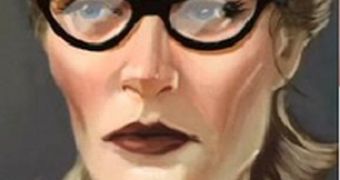One of the great accomplishments of the first BioShock was that it managed to provide some high-brow meta-commentary on the relationship between those who played video games and those who created them. After all, the revelation (the game has been out for enough time so as to allow me to spoil it in its entirety, but, if you are worried, you should better not read any further) that Andrew Ryan, the creator of Rapture, could control the player through the use of a phrase was showing the control that game designers had over players and how they could use it. Andrew Ryan was more concerned, from a philosophical standpoint, about the free will of those linked to Rapture than about the very survival of the city itself.
BioShock 2 is offering another strong philosophy-inclined figure in Sophia Lamb, who serves as an antagonist to the player, but is also clearly opposing Andrew Ryan, even debating with him before the fall of Rapture on the finer points of human rationality, salvation and free will. Some of the most engrossing audio diaries to be found in BioShock 2 are those that see the two characters engaged in verbal sparring, with a portion of the citizens of Rapture heard reacting in the background.
Whereas Andrew Ryan is a proponent of pushing free will to its ultimate consequences, Sophia Lamb is more interested in how communities need to band together in order to survive. 2K managed to give her a background that sheds new light on her views, saying that Lamb was working with the survivors of the Hiroshima bombings previous to being invited to Rapture.
It's worth searching out for the diaries and I wish to a certain extent the developers had included more exchanges like this one:
“Ryan: Religious rights, Doctor? You are free to kneel before whatever tribal fetish you favor in the comfort of your own home. But in Rapture, liberty is our only law -- A man's only duty is to himself. To imply otherwise, therefore, is criminal.
“Lamb: Ask yourself, Andrew -- what is your 'Great Chain of Progress' but a faith? This chain is a symbol for an irrational force, guiding us towards ascension -- no less mystic than the crucifixes you seize and burn.”

 14 DAY TRIAL //
14 DAY TRIAL //